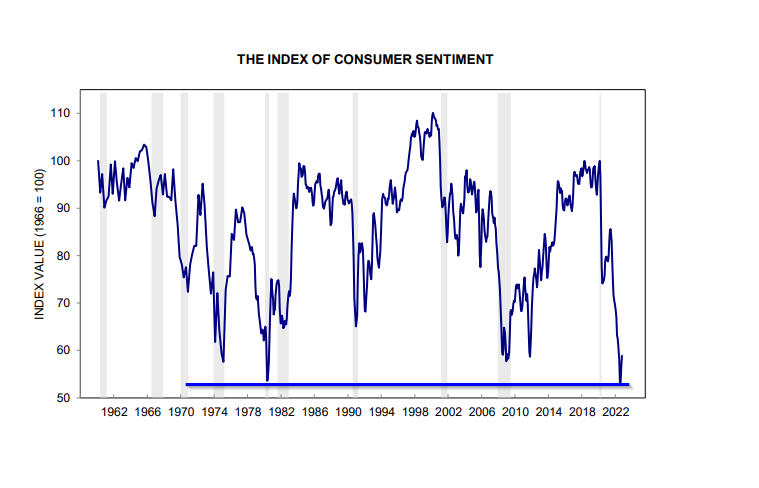Economics
The Dangers of Depreciation: The Decline of Central Bank Assets
The Dangers of Depreciation: The Decline of Central Bank Assets Central bankers around the world hold a significant portion of their countries’ financial…

The Dangers of Depreciation: The Decline of Central Bank Assets
Central bankers around the world hold a significant portion of their countries’ financial assets, which they use to manage their respective economies and stabilize financial markets. Recently, however, the value of these assets has been decreasing, leading to concerns about their ability to effectively fulfill their responsibilities.
The primary cause of this decline is the rising inflation and interest rates, which have led to a decrease in the value of bonds and other fixed-income assets that central bankers typically hold. Higher inflation erodes the value of these assets, while rising interest rates reduce their appeal to investors, as they offer lower returns. This has resulted in a decrease in demand for these assets, which in turn has contributed to their declining value.
The decline in the value of central bank assets is a cause for concern, as it reduces their ability to intervene in financial markets and stabilize the economy. In the event of a financial crisis, central bankers can sell these assets to provide liquidity to the market and prevent a meltdown. However, if the value of these assets has decreased, they may not be able to provide the same level of support as before.
Furthermore, the decline in the value of central bank assets can also affect their credibility, as it calls into question their ability to manage their own financial resources effectively. This can reduce trust in the central bank and its ability to implement monetary policy effectively, which can have negative impacts on the broader economy.
However, the crucial question remains: will they focus on what is happening now or on the rear outlook (examining old data)?
The Fed and other central bankers’ assets worldwide are losing value (they purchased bonds earlier at much higher prices). In one way, the Fed cuts off its nose to spite its face.
Britain’s move highlights a dramatic shift in countries including the U.S., where central banks are no longer significant contributors to government revenues. The U.S. Treasury will see a “stunning swing,” going from receiving about $100 billion last year from the Fed to a potential annual loss rate of $80 billion by year-end, according to Amherst Pierpont Securities LLC.
-
The Reserve Bank of Australia posted an accounting loss of A$36.7 billion ($23 billion) for the 12 months through June, leaving it with a A$12.4 billion negative-equity position.
-
Dutch central bank Governor Klaas Knot, warned last month he expects cumulative losses of about 9 billion euro ($8.8 billion) for the coming years.
-
The Swiss National Bank reported a loss of 95.2 billion francs ($95 billion) for the first six months of the year as the value of its foreign-exchange holdings slumped — the worst first-half performance since it was established in 1907. https://cutt.ly/rNiT4bB
Sweden’s central bank expects to report a loss of 81 billion Swedish crowns ($7.72 billion) for 2022 due primarily to higher market interest rates, it said on Wednesday. “The unrealised loss is mainly due to globally rising market interest rates, which has reduced the market value of the Riksbank’s assets,” it said in a statement. https://rb.gy/l5qzul
Liquidity in the bond markets is drying up, and the Fed could soon be forced to intervene like the BOE and BOJ. Then we have the crises many developing nations face; some will not be able to make interest payments on their loans. Pension funds are also facing liquidity crunches; they were supposed to invest their client’s funds in safe assets but decided to use complex instruments to boost their returns. Which is another sneaky way of stating they used derivatives to juice their returns. Wage inflation also shows signs of topping, and the same applies to rental prices. Hence if the Fed chooses to focus on real-time data instead of relying on old data, they would see that the path of least damage now is to adopt a less aggressive tone.

Source: http://www.sca.isr.umich.edu/files/chicsh.pdf
This index is at an all-time low. This is a remarkable development in light of the official data indicating that we are not even in a recession. However, during 2008-2009, when readings were slightly higher, we were on the verge of a depression. Instead of calling it that, the great recession phrase came into play (in an attempt) to downplay the severity of the situation. However, now the psyops is so great that everything is just “wunderbar.“
To summarise
For example, during periods of economic growth and low inflation, central bank assets may have increased in value, while during periods of economic slowdown or financial crisis, the value of these assets may have decreased.
One of the primary challenges facing central bankers is maintaining the value of their assets while also achieving their monetary policy goals. For example, if central bankers raise interest rates to combat inflation, this may reduce the value of their assets, as the yield on bonds and other fixed-income assets decreases.
The decline in the value of central bank assets can have a variety of consequences, including reduced ability to provide support to the financial system, reduced confidence in the central bank and its ability to manage monetary policy, and potential negative impacts on the broader economy.
To address these challenges, central bankers may need to diversify their portfolios, implement more effective risk management strategies, and increase transparency and accountability in their operation.
Other Articles of Interest

The Dangers of Depreciation: The Decline of Central Bank Assets
Read More

The Hidden Benefits of Financial Instability: Reassessing Conventional Wisdom
Read More

What is an ETF? A beginner’s guide to exchange-traded funds
Read More

Economic Inequality in the United States: A Comprehensive Overview
Read More

Maximize Your Returns: The Ultimate Guide to Asset Allocation in Investment Management
Read More

Mortgage Rate Trends: Experts Predict the Future
Read More

Tactical Investor Portfolio – Open Positions
Read More

Nasdaq monthly chart? What is it saying
Read More

What is the Velocity of Money
Read More

Geopolitical news: The Energy Crises
Read More

The next Bull Market
Read More

Silver to Gold Ratio
Read More

Interesting Geopolitical Events
Read More

Market Rally: Will the Market Rally This Summer
Read More

The stock market is stuck in a trading zone
Read More

Stock Market Trading range: what’s next?
Read More

History of financial markets: The Masses are Doomed
Read More

Covid Resistance
Read More

Does Technical Analysis work?
Read More

Good Stocks: Value Stocks Usually Fall under this category
Read More
The post The Dangers of Depreciation: The Decline of Central Bank Assets appeared first on Tactical Investor.
gold
silver
inflation
derivatives
monetary
markets
reserve
policy
interest rates
fed
central bank
monetary policy
nasdaq

Argentina Is One of the Most Regulated Countries in the World
In the coming days and weeks, we can expect further, far‐reaching reform proposals that will go through the Argentine congress.
Crypto, Crude, & Crap Stocks Rally As Yield Curve Steepens, Rate-Cut Hopes Soar
Crypto, Crude, & Crap Stocks Rally As Yield Curve Steepens, Rate-Cut Hopes Soar
A weird week of macro data – strong jobless claims but…
Fed Pivot: A Blend of Confidence and Folly
Fed Pivot: Charting a New Course in Economic Strategy Dec 22, 2023 Introduction In the dynamic world of economics, the Federal Reserve, the central bank…















